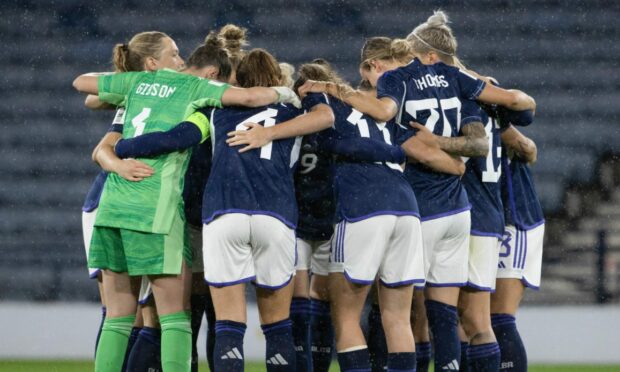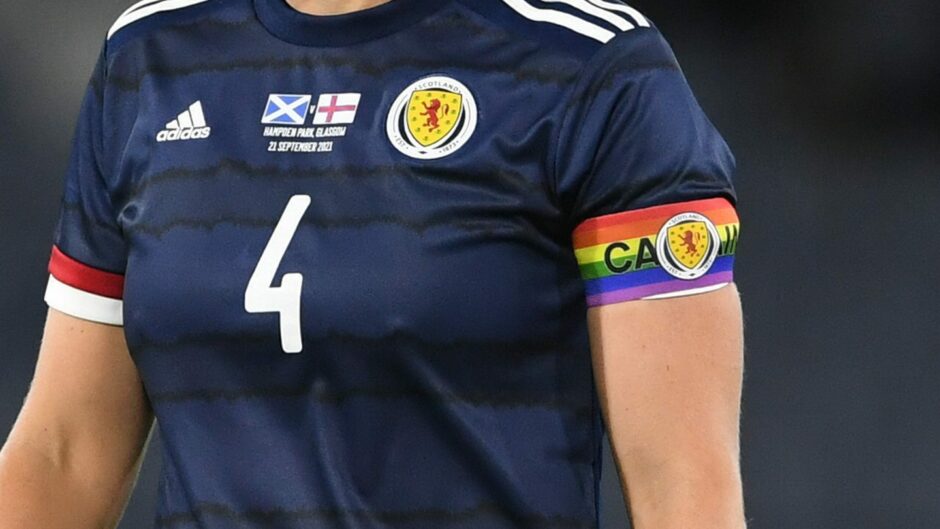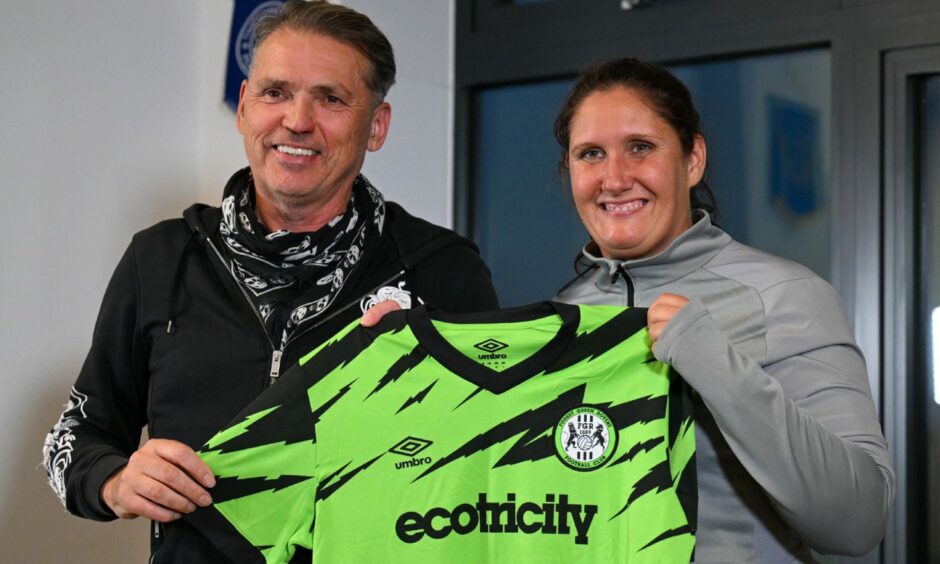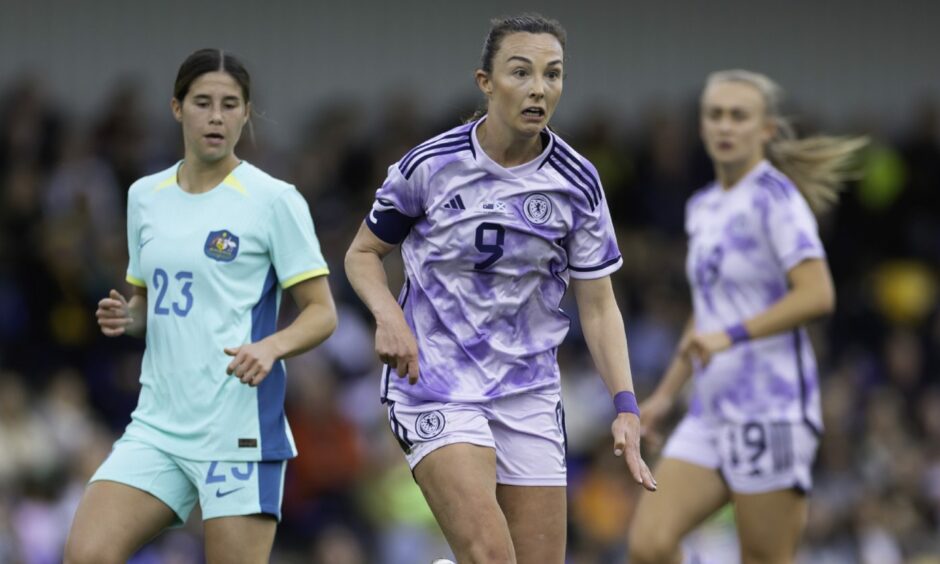Reports last weekend revealed the Scottish FA are to survey female footballers, including Scotland Women’s National Team players, for their opinions on trans women’s participation in our sport.
The anonymous survey forms part of a review being conducted by the football governing body which I understand is looking at how trans women “can safely take part in the women’s game”.
Participation of trans women across women’s sport is an important conversation.
As I understand it, the SFA’s existing rules are aligned with Scottish Government guidance, which says transgender footballers can play for women’s teams – although with the caveat individual players must prove their testosterone levels have been brought down to within the female range.
With regards other sports, Scottish Rugby have already banned trans women from taking part in female contact rugby, while opponents to trans women in female sport maintain athletes who have gone through male puberty have physical advantages over those who have not, and believe this constitutes unfairness, as well as being dangerous for female athletes.
I am yet to see the SFA’s survey.
But my genuine view on trans women’s participation in Scottish women’s football is I am happy for them to be included, and I don’t feel any opposition to trans women being on my team or in opposition teams.
Firstly, I don’t believe the majority of the current SWNT player group have closely engaged with or had conversations with a trans person, so I think it is unfair to us – and to trans athletes – to ask our squad to wade in to a debate which could affect trans women’s lives.
My fear with the planned anonymous questionnaire to players about this issue is the potential for those surveyed to say they are against trans women’s participation simply out of fear about losing their position to someone who might be quicker and stronger than them.
To explore this a little, while trans women might be quicker and stronger, I think there’s so much more to football than just these physical measures.
Technique, relationships with team-mates, tactics, and formations are all part of it.
However, even if we boil it down to just individual players’ physical abilities, disparities already exist and there are already a variety of athletes within women’s football teams.
I could race Australian striker Sam Kerr over 100 metres 100 times – and she’d beat me every time by 20 metres!
Is that unfair, because she is faster than me?
I understand why you would maybe feel differently if your sport was something individual and more rooted in physical measures, like sprinting, high jump, swimming and so on are.
Some people reading this will be of the view greater physical attributes of trans women are relevant to football – and dangerous – when it comes to tackling or going up for headers.
However, again, in men’s and women’s football already there are examples in every game of 6ft 5in players tackling with and jumping against opponents who are a foot shorter than them and much lighter.
So why is it more unfair or dangerous if it is a trans woman?
As I have said above, most of the SWNT players’ contact with trans people to this point has been limited, as far as I’m aware, so the prospect of trans women suddenly flooding Scottish professional and grassroots football teams feels unlikely.
Some of the debate around trans women in sport seems to be rooted in the suspicion biological males are trying to cheat the system and reach the elite level by playing women’s sport. But no-one would undergo the huge life upheaval of transitioning just to further their sporting career, would they? This seems a ridiculous suggestion, and it doesn’t benefit anyone to dream up these kind of unlikely, extreme scenarios.
For me, inclusivity is a pillar of women’s football.
I understand the issue of trans athletes is a complex one for bodies across sport to come up with blanket rules on.
But I believe if we educate ourselves and pause to talk it through, you realise, when it comes to our game, the inclusion of trans women is not a problem.
We’ve had to fight for acceptance, and I don’t think it would be right to deny this acceptance to others.
When will we see a female boss in Scottish men’s football?
Hannah Dingley’s historic appointment as caretaker manager at Forest Green Rovers has me wondering when we could see a female boss in the SPFL.
Dingley has become the first-ever woman to take charge of a men’s side in England’s top-four divisions, stepping up from her academy role following the departure of Duncan Ferguson.
Given men’s football history compared to women’s football, there have naturally been far more active male coaches than female coaches on both sides of the game over the decades.
However, in recent years we have started to see far more female coaches in top roles on the women’s side of things, while the likes of Dingley, as well as Brentford under-18s coach Lydia Bedford, have started blazing the trail on the men’s side.
This latest step feels like a natural outcome from the increased opportunities for female players, and then the increased avenues, including coaching and management, we have to stay in the game once playing careers are over.
I don’t want to dwell on Dingley’s appointment too much – and give novelty status to what I am sure is an earned, deserved opportunity.
It is great to see.
We should not automatically assume all women’s coaches’ ambition is to make it to men’s game. Yes, it is probably financially more lucrative, but money is not everyone’s drive and it is wrong to view any job in the men’s game as automatically being more prestigious than bossing a top women’s club.
But it is good to see the pathway to male football is there.
There will be some prejudice in the men’s game, but I think players respect coaches who are good at their job, whether they are male or female.
I am curious now to see who will be the first woman to take on a high-profile men’s coaching role in Scotland.
Leanne Crichton is currently doing her Uefa pro licence, and I know her sessions have impressed former male players who have seen her coach, while she also has a decent profile due to her media work since hanging up her boots.
Hearts Women boss Eva Olid also impressed with her work last season.
They could both be candidates.
Scotland Women must use camp to build on good feeling for Nations League campaign
I am gearing up for another Scotland Women’s camp, with friendlies against Northern Ireland and Finland coming up on Friday and next Tuesday, respectively.
It is safe to say we feel they are games we should win.
I will be returning to the international fold having missed the last camp after knee surgery, but, from what I have heard, there was a really good vibe last time around – which the 1-0 win over Australia certainly helped foster.
This camp, it is about keeping the feeling going; continuing to put the disappointment of missing out on the World Cup behind us and keeping up what have been good preparations thus far for our inaugural Nations League group campaign later in the year.
We have been drawn in a really tough pool with England, Belgium and the Netherlands.
I am hopeful we can use this camp – the training time and the element of freedom which comes with friendlies, starting with Northern Ireland at Dundee’s Dens Park – to really get ourselves in a good place for the tough, important matches ahead.





